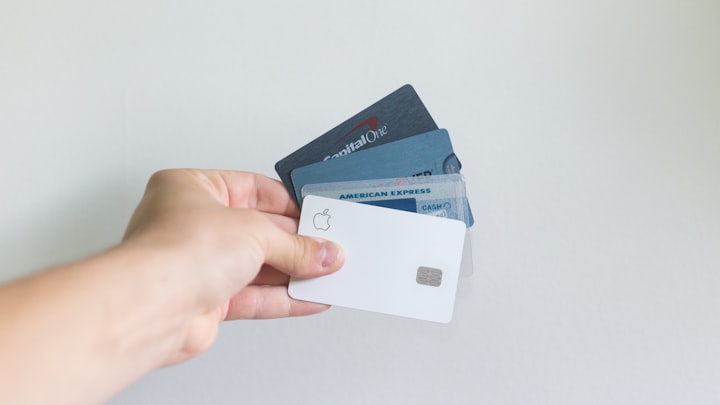Strategies for Rapidly Paying Off Credit Card Debt
Debt got you down? You are not alone! Take a deep breath... and follow these strategies to make a dent in your debt.

Credit card debt can be burdensome, but with the right strategies and a focused approach, you can pay it off quickly and regain control of your financial well-being. In this article, we will explore effective techniques to help you eliminate credit card debt and achieve financial freedom faster than you may have thought possible.
Create a Budget:
Begin by assessing your income, expenses, and debt obligations. Develop a comprehensive budget that includes all your necessary expenses while minimizing discretionary spending. Allocate as much money as possible towards paying off your credit card debt each month.
Prioritize Debt Repayment:
Identify the credit card with the highest interest rate and focus on paying it off first. This approach, known as the debt avalanche method, allows you to save money on interest charges over time. Pay the minimum amount on other cards while directing any additional funds towards the card with the highest interest rate until it is completely paid off. Repeat this process with the next card on the list.
Consider Balance Transfers:
If you have a high-interest credit card balance, explore the option of transferring the balance to a card with a lower interest rate. Many credit card issuers offer promotional periods with 0% or low-interest rates for balance transfers. This strategy allows you to save on interest charges and accelerate debt repayment. However, be mindful of any balance transfer fees and the duration of the promotional period.
Increase Your Income:
Look for opportunities to boost your income, such as taking on a part-time job, freelancing, or selling unused items. Direct the additional earnings towards paying off your credit card debt. Increasing your income accelerates the debt payoff process and provides a financial buffer to help you stay on track.
Cut Expenses:
Review your expenses and identify areas where you can cut back. Trim unnecessary subscriptions, reduce dining out, and find creative ways to save on everyday expenses. Consider negotiating better rates for services such as internet or insurance. Redirect the money saved towards debt repayment.
Implement the Snowball Method:
Another popular debt repayment strategy is the snowball method. Start by paying off the credit card with the smallest balance while making minimum payments on other cards. As you eliminate smaller debts, roll the payments into the next larger balance. This method provides psychological motivation as you experience quick wins, boosting your confidence and momentum.
Seek Professional Help:
If you find yourself struggling to make progress or need expert guidance, consider consulting a credit counseling agency or a financial advisor. They can provide personalized advice, negotiate with creditors on your behalf, and help you create a debt management plan.
Negotiate Lower Interest Rates:
Reach out to your credit card issuers and inquire about the possibility of lowering your interest rates. Explain your intention to pay off the debt quickly and your commitment to responsible financial management. Some credit card companies may be willing to reduce your interest rates, especially if you have a good payment history. Lower interest rates mean a larger portion of your payments goes towards the principal balance, enabling you to pay off the debt faster.
Stay Committed and Track Progress:
Maintain discipline and stay focused on your goal of becoming debt-free. Regularly monitor your progress and celebrate milestones along the way. Track your spending, revisit your budget periodically, and make adjustments as necessary to ensure you stay on track.
Paying off credit card debt quickly requires dedication, discipline, and a well-defined strategy. By creating a budget, prioritizing debt repayment, increasing income, and reducing expenses, you can accelerate your journey towards financial freedom. Stay focused, remain committed, and envision the peace of mind that comes with being debt-free. Remember, every step you take brings you closer to a brighter financial future. The most important part is to find a way to stop incurring NEW debt while you tackle your existing debt.





Comments
There are no comments for this story
Be the first to respond and start the conversation.